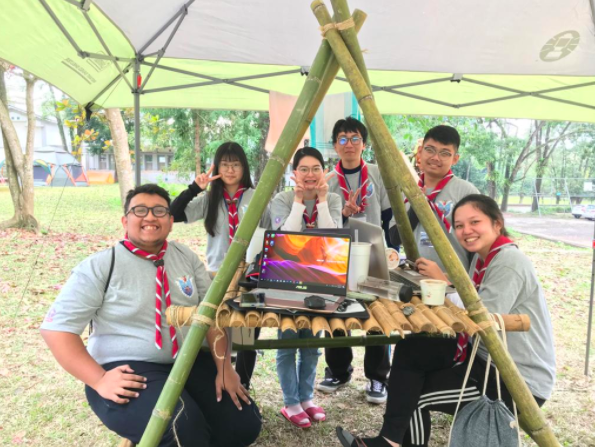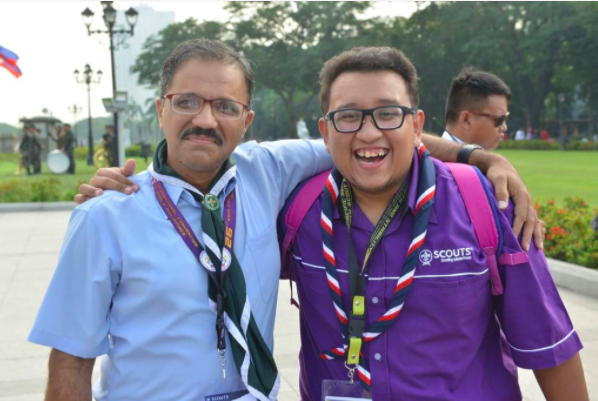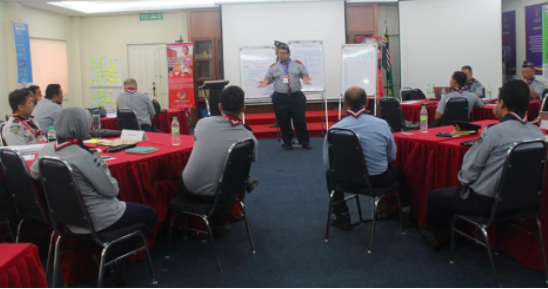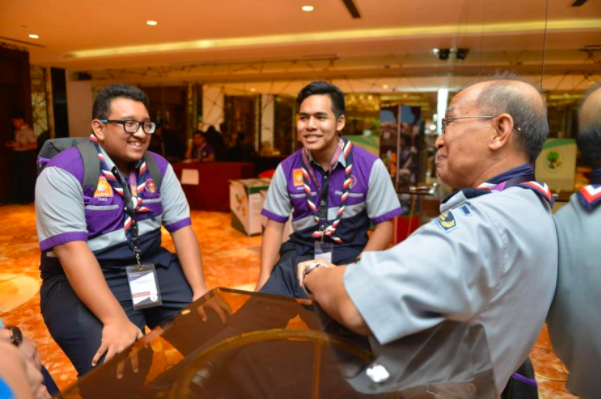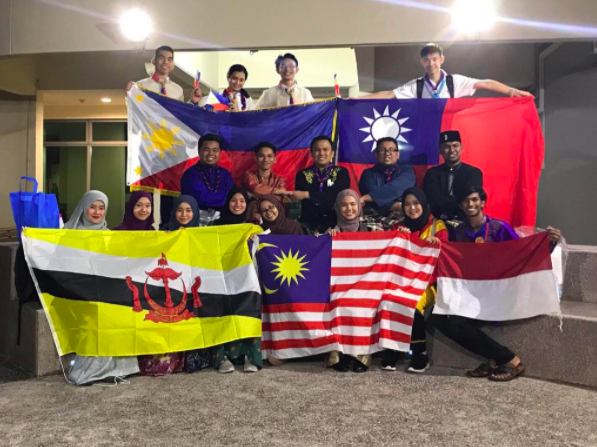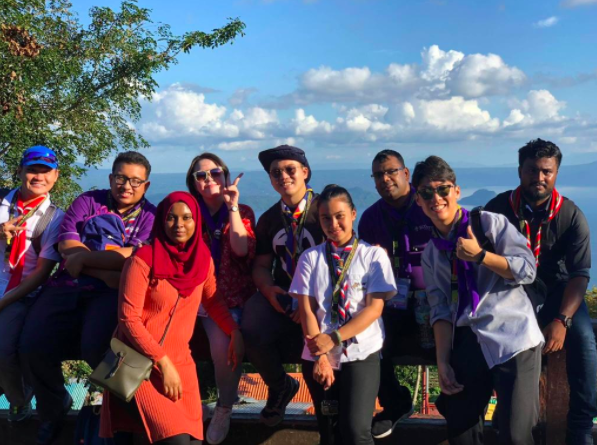7 things I learnt about interpersonal communication from my time at Scouts Malaysia
7 things I learnt about interpersonal communication from my time at Scouts Malaysia
Communication is never one-way. Just think about it; to talk to someone, you need someone else to listen. Based on that, you expect a response. However, there are times when no matter how clearly you speak, how hard they listen and how much you try to understand each other, things just do not work out. In this article, allow me to share my personal tips to improving interpersonal communication based on my 11 years of Scouting experience.
1. When you speak, you use 2 languages
Did you know that you use 2 languages when speaking? When you communicate, besides using your verbal language, you also use your body language which makes up 70% of your communication. Sometimes you might not realise it, but the slightest of frowns, clenching of teeth or fisting your hands can send the wrong signals, even if you never intended them!
Always remember, when meeting new people or when communicating in a group, it never hurts to carve a smile or shake a few hands. When you show the brighter side of yourself, indirectly you are telling other people that it is okay to approach you, and that you are willing to extend friendships.
2. Not everything you understand is everything they mean
The unique thing about human beings is that no two brains are alike! Even though humans have existed for centuries, we live in the same country, we are from the same race, we practice the same religion, or even if we come from the same family; no matter how alike we are to one another, the truth is, everyone is different, and it is practically impossible to guess what other people think 100% of the time.
According to David Rock, our brains are a network of maps built up from birth. Everything we see, hear, smell, taste and feel are based on the way these existing maps in our brains perceive them, not based on the way they truly are. For example, we perceive apples to be red, or that honey is sweet based on our past experiences looking at apples and tasting honey, not because that is the way apples and honey truly are.
In the same way, that is how we perceive things when communicating. We listen and interpret messages based on our own perceptions and way of understanding. Based on these thought processes, we are affected emotionally and as a whole, regardless of the message’s real intention and meaning.
Remember how I mentioned that communication is never one way? Many times conflicts and misunderstandings can be avoided just by a simple “Is this what you mean” or “Can you please explain what you meant?”. It is never too late to seek clarification, especially when interacting with another person.
3. No is always an option
One of the biggest forms of motivation is human beings innate desire to belong. In a previous article, I mentioned about Maslow’s Hierarchy of Need and how belongingness is a form of psychological need for human beings. There are times when we communicate where we force ourselves to agree or to give in to certain situations, just simply because we wanted to belong to a certain group of friends, we wanted to look cool or from our fear of being alienated.
In the first few instances, we might be able to cope with our feelings, but in the long run, we start to burn out, feel burdened, depressed and we slowly die emotionally inside. I’m sure to feel burdened and depressed are never the reasons for having friends, right? One thing you need to realise is that there are times when you need to make a stand, when you need to protect yourself, and just say ‘No’. Friendships are supposed to make you feel happy, excited and accepted. If you feel burdened, it’s time to step away. Remember how I told you that we are never able to read other people’s minds? If you do not learn to say ‘No’, your friends will always think that you are okay, that there isn’t an issue and continue with the way things are.
You might feel scared that your circle might not accept you for making your stand, but real friends will always understand. Who knows? They might even respect you more that you are able to have a say in the conversation. Now that would make you look really cool.
4. A coin has two sides.
Now, this is slightly related to tip number 2. A coin has two sides, heads and tails. But if you are looking at only one side, you will always say that the coin is facing ‘Heads’ or that it is facing ‘Tails’. If you do not realise that the coin has two sides, no matter how many times you say the coins show ‘Heads’ you will never understand why your counterpart says it is showing ‘Tails’. The question is, is your friend wrong? Or are both of you right at the same time?
Similarly, when communicating or when you are working in groups, seek to understand other people, their train of thoughts or the foundations of their reasonings. You both might be looking at the same thing, just from a different angle or perspective. If there is one thing I learned from Scouts, it is that you always ask for other people’s opinions.
Trust me, you will be surprised when you ask for their views because they might come up with the same answers as you, or even answers you never thought of, imagined or even saw! That’s the beauty of working in groups.
Sorry is never a sign of weakness
When communicating with other people, you can never run away from conflicts. It could be a small issue, a big problem or even something really silly! Regardless, there are times for us to pull and make our point, and sometimes there are times for us to bend the rules and our ego to cater for the others. I always believe that life is too short to hold grudges, and that life is too short for us to be too proud and egoistic. I believe in the power of friendship because no man is an island!
There are times when we say sorry because we truly admit that we messed up and are in the wrong; and there are times that no matter how clearly, we have made our point, both sides just do not want to give in. Based on my experiences in Scouting, I have learnt that saying sorry does not mean we are wrong, saying sorry is not a sign of weakness, but that saying sorry shows we care about the bond and relationship.
When we say sorry, we show that we care more about the friendship, that its time to move on and that life is too short to dwell over grudges. I believe that saying sorry is not a sign of weakness, and sometimes I discover, people’s weakness is not saying sorry. Which end of the equation are you on?
6. Intergenerational dialogue
Scouting is a movement for youth, supported by adults. In scouting we interact among peers, Scouts in the same troop, and sometimes we interact with our Scout Leaders and Masters. This in turn, gives way to intergenerational dialogue where the energetic youth interact with the experienced adults.
Now, many might feel that is not a pertinent issue when it comes to interpersonal communication, but one thing I have noticed from my Scouting days is that there are times when generation gap does become an issue. Young people do not seem to be able to uphold the conventions and etiquette practiced when speaking with an elder person of the society, and the adults are always struggling to understand the minds of young people, or to explain why they already know something might or might not work out.
I believe all it takes is a little extra effort in listening more, and holding back our prior beliefs when entering the conversation. Members of the younger generation should be able to convey their message with manners and politeness, while at the same time acknowledging the need for guidance from the older generation.
Similarly, the older generation should listen more, seek to clarify grey areas and convey their thoughts with politeness, acknowledging the efforts of the younger person. Outside Scouting, I truly believe this is very applicable at home between parents and children, in school between teachers and students and many more.
7. When in conflict, find a level ground.
The key to resolving a conflict is to always show you understand. In Scouting, we are always taught to suspend our judgements and prior beliefs when entering a conversation. This is to ensure we do not prematurely make our stand or decide if we can accept a certain idea.
Secondly, we are also taught to do all that we can to interact with the other party on an equal, level ground. Always seek to speak with the other person as equals or from a level ground because if we feel we are better or right; or if we feel inferior and wrong, peace making and conflict resolution will be very hard to achieve.
Finally, when communicating, instead of expecting to change others and gain more supporters, always enter the conversation expecting to be changed. This makes it easier to interact and a lower chance of conflicts.
In conclusion, I hope these tips will help you in improving your interpersonal communication game! These are just my personal tips gathered throughout my Scouting journey and I hope they work and prove beneficial for you.



